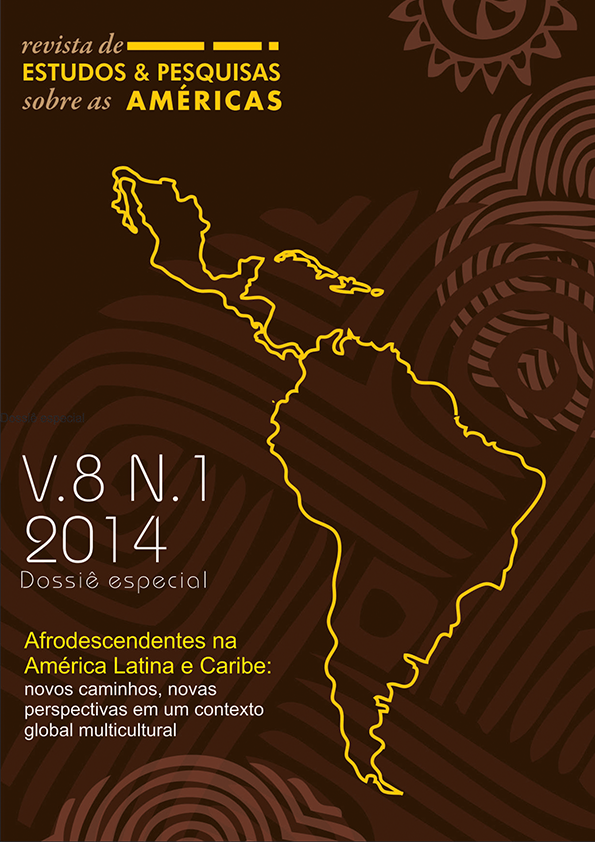Afrodescendentes na América Latina e Caribe: novos caminhos, novas perspectivas em um contexto global multicultural
Abstract
Nos últimos anos, vários países da América Latina e do Caribe promoveram reformas legislativas e institucionais com o objetivo de reconhecer e afirmar o caráter multiétnico e multicultural da nação. Esse movimento foi identificado como um “giro multicultural” que começou a ser implantado desde o final dos anos 80. Em boa parte desses países, a categoria de alteridade, antes atribuída especialmente aos povos indígenas, foi estendida à s populações de origem africana que, dessa maneira, ganharam maior visibilidade enquanto populações culturalmente diferenciadas. É nesse contexto que o conceito de afrodescendente adquire um status quase generalizado no seio das instituições internacionais e estatais e entre os movimentos políticos, sociais e culturais da região, sem que com isso desapareçam outras formas de denominação nacional relativas a essas populações. Verifica-se, também,  uma diversidade de experiências de reconhecimento das populações afrodescendentes nos mais diversos países do continente americano. O texto que propomos aborda os artigos do dossiê que aqui se apresenta e que tem como objetivo principal apresentar essa diversidade de experiências e romper com o desconhecimento que ainda existe, especialmente no Brasil, da realidade das condições e demandas das populações afrodescendentes nos países latino-americanos e caribenhos.Â
palavras-chave: afrodescendentes, américa latina e caribe, introdução, novas perspectivas.
---
Afrodescendants in Latin America and the Caribbean: new paths, new perspectives in a multicultural global context
Over the last few years, several countries in Latin America and the Caribbean have promoted legislative and institutional reforms in order to acknowledge and confirm the multiethnic and multicultural character of their nations. This movement was identified as a "multicultural spin" that was implemented in the late 80s. In most of these countries, the category of alterity, previously attributed, particularly, to indigenous peoples, was extended to populations of African origin that, thus, came to acquire greater visibility as culturally differentiated populations. It is in this context that the concept of "African descent" acquires an almost universal status within international and local institutions and among political, social and cultural movements in Latin America, without ignoring other forms of national denomination for these populations. It can also be observed a diversity of experiences for the recognition of Afro-descendants in various countries of the American continent. The proposed text addresses the articles of the dossier presented here, works which have as main purpose the presentation of these many experiences and that try to break through the disregard that still exists, especially in Brazil, to the real conditions and needs of Afrodescendent populations in Latin countries American and Caribbean.
keywords: afrodescentes, latin american and caribbean, introduction, new perspectives.
Downloads
Published
Issue
Section
License
The published material is the property of the Journal, and may be reproduced in whole or in part with indication of the source.
Copyright: Authors will be responsible for obtaining the copyright of the material used. Authors who publish in this journal agree to the following terms:
a)Authors retain the copyright and grant the journal the right of first publication, with the work simultaneously licensed under
the Creative Commons Attribution License which allows the sharing of work with acknowledgment of authorship and initial publication in this journal.
b) Authors are authorized to take additional contracts separately, for non-exclusive distribution of the version of the work published in this journal (eg, publish in institutional repository or as a book chapter), with acknowledgment of authorship and initial publication in this journal.
c) Authors are allowed and encouraged to publish and distribute their work online (eg in institutional repositories or on their personal page) at any point before or during the editorial process, as this can generate productive changes as well as increase the impact and the citation of the published work (See The Effect of Free Access).
















